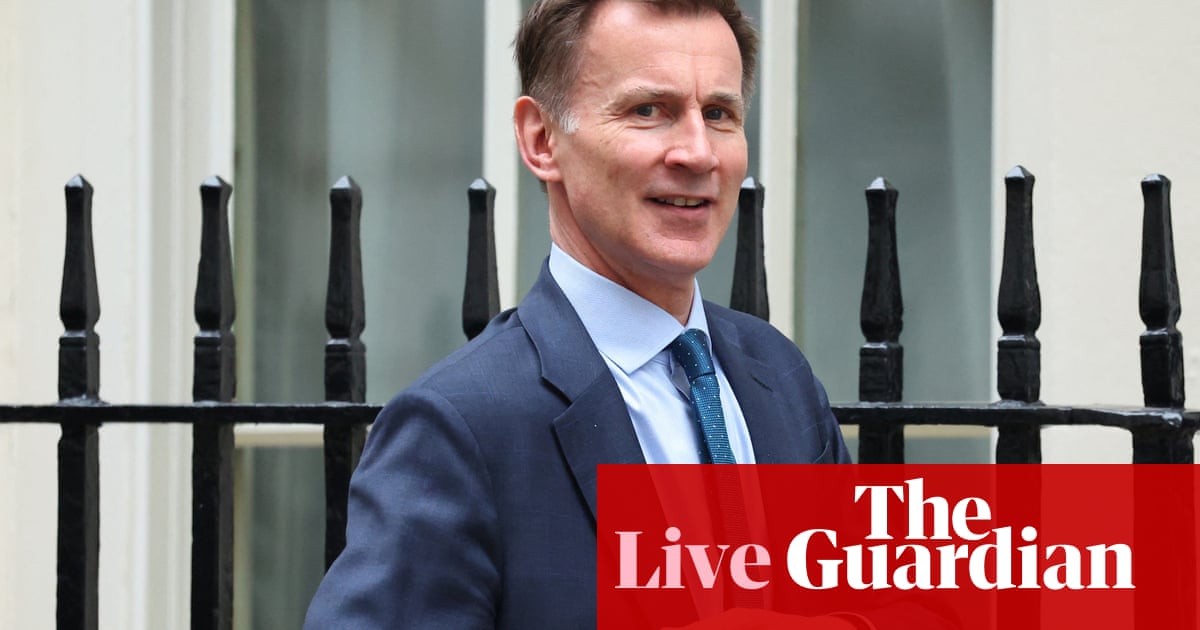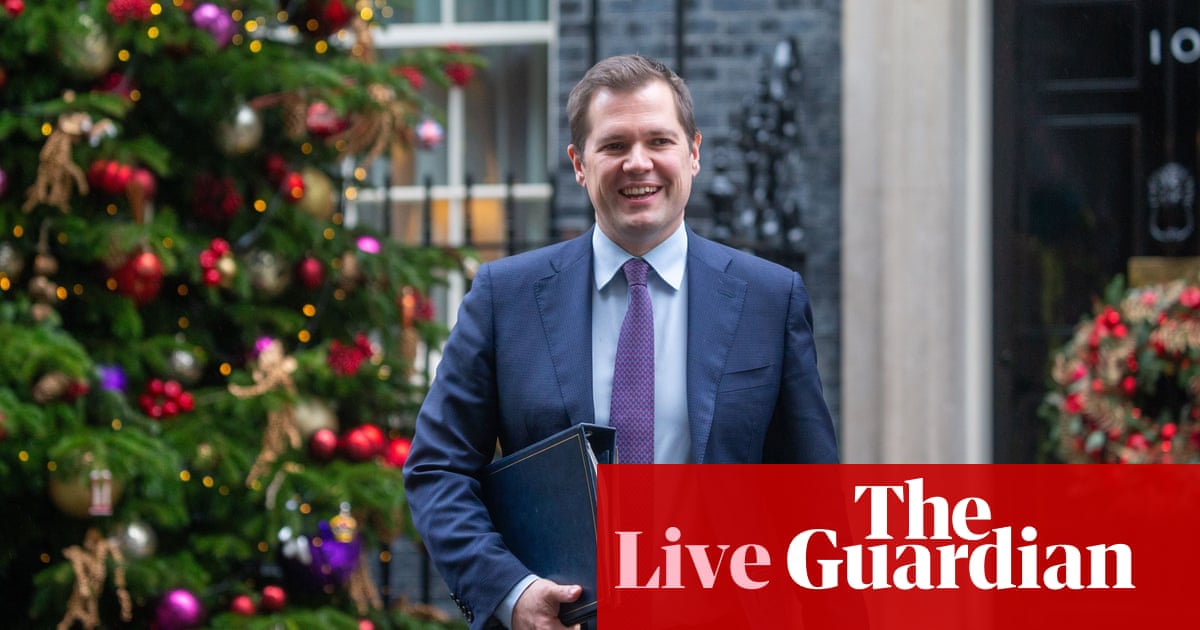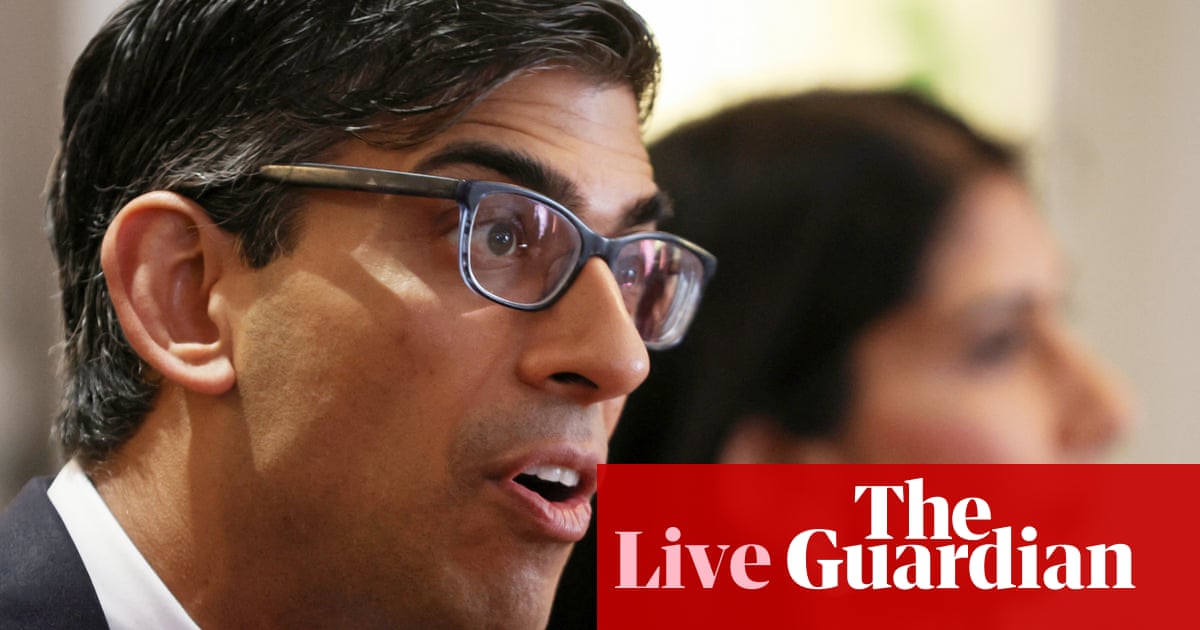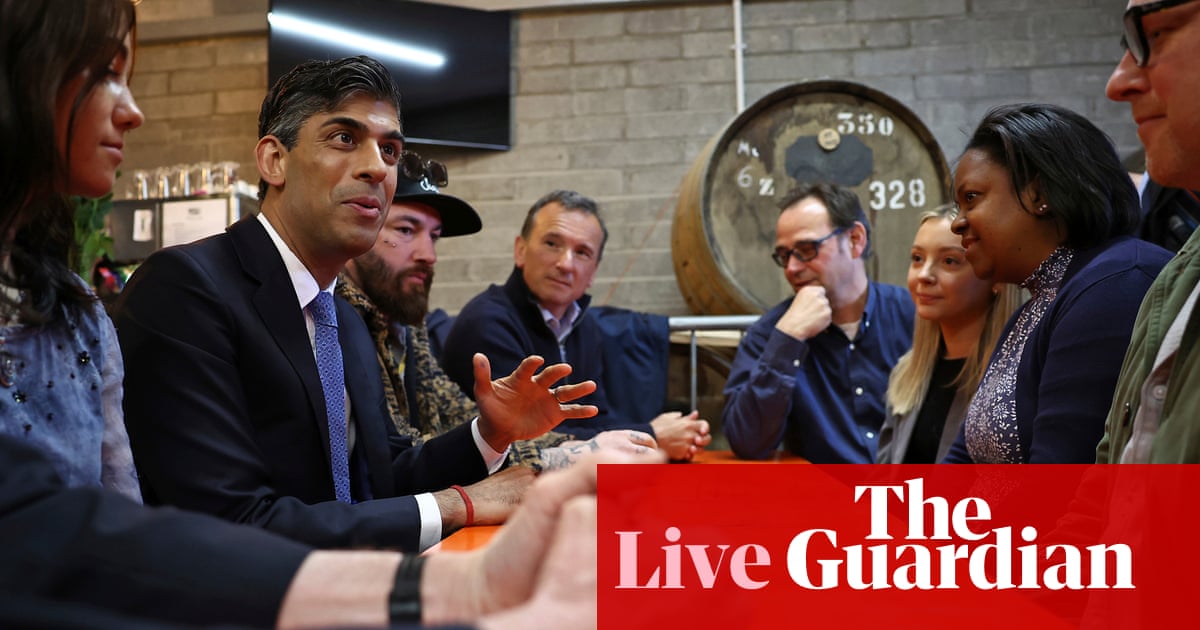
Prisons fix won"t happen overnight, says Starmer
Starmer said it is “impossible” to say the government will stop the early release of prisoners.
He told the press conference in Downing Street:
We’ve got too many prisoners, not enough prisons. That’s a monumental failure of the last government on any basic view of government to get to a situation where you haven’t got enough prison places for prisoners, doesn’t matter what your political stripe, that is a failure of government.
It’s a failure of government to instruct the police not to arrest. This has not had enough attention, in my view, but it’s what happened.
We will fix that, but we can’t fix it overnight and therefore it is impossible to simply say we will stop the early release of prisoners and you wouldn’t believe me if I did say it.”
Summary
On his first full day as prime minister Keir Starmer, held his first cabinet meeting at Downing Street where he told his assembled ministers: “We have a huge amount of work to do, so now we get on with our work”. Starmer later told journalists: “I had the opportunity to set out [to] my cabinet precisely what I expect of them in terms of standards, delivery and the trust that the country has put in them.” He also said he was proud to have cabinet ministers who “didn’t have the easiest of starts in life” and reflect the “aspiration” at the heart of Britain.
In his first press conference, Starmer announced that he would be setting off tomorrow to visit all four nations of the United Kingdom, saying “we clearly on Thursday got a mandate from all four nations”. He said his plan is to visit Scotland, followed by Northern Ireland and then Wales before returning to England. Later on Tuesday next week, Starmer will set off for Washington to attend the Nato summit.
Starmer labelled the previous government’s Rwanda scheme a “gimmick” which was “dead and buried before it started”. Speaking to the media in Downing Street, Starmer said the Rwanda scheme had “never been a deterrent”.
The results for the final seat in the 2024 general election have come in, with Liberal Democrat Angus MacDonald winning Inverness, Skye and West Ross-shire and becoming the sixth Liberal Democrat MP in Scotland. Drew Hendry of the SNP conceded the seat with MacDonald 2,160 votes ahead.
The overall turnout for the general election was the lowest it has been for more than 20 years. Just 59.9% of the population voted, a sharp decrease from the 67.3% that voted at the 2019 election. It was the worst turnout at a general election since 2001, when just 59.4% showed up to the polls – the lowest since before World War II.
Jeremy Hunt, the former chancellor who previously ran as a Tory leadership hopeful, has ruled himself out of the race, telling GB News that the “time has passed”.
The new health secretary, Wes Streeting, has declared the NHS is broken as he announced talks with junior doctors in England would restart next week. The Ilford North MP said patients were not receiving the care they deserved and the performance of the NHS was “not good enough”.
Nigel Farage said his aim is to “build a mass movement for real change leading up to the next sets of elections”. Speaking from Wyldecrest sports country club in Essex on Saturday, the Reform UK leader said: “We will do what we can with five in parliament, what I will do for certain is provide real opposition in the country.”
Tory grandees including David Cameron are pushing back against the idea of a swift Conservative leadership contest, saying they want the candidates to be tested. Prospective candidates, including Robert Jenrick, Kemi Badenoch, James Cleverly, Suella Braverman, Tom Tugendhat, Priti Patel, and Victoria Atkins, are among the long list of names believed to be preparing possible bids.
Some of Rishi Sunak’s closest allies are facing an angry backlash after being awarded honours by the former prime minister, despite their apparent role in the “insane” decision to call an early election. The former deputy prime minister Oliver Dowden and chief of staff Liam Booth-Smith were singled out by angry candidates and aides for their role in the “cataclysmic defeat” that several sources claimed had been made worse by the early election decision.
Seven MPs won their seat at the general election by a majority of under 100, PA news agency is reporting.
David Pinto-Duschinsky, Labour MP for Hendon in north London, had the smallest majority of just 15 votes. Neil Duncan-Jordan, Labour MP for Poole in Dorset, had a majority of 18, while Conservative party chairman Richard Holden, MP for Basildon and Billericay in Essex, had a majority of 20.
Sam Carling, Labour MP for Cambridgeshire North West won by a majority of 39 and Mel Stride, Conservative MP for Devon Central won by 61 votes. In Havant in Hampshire, Conservative MP Alan Mak won by 92 while James McMurdock, Reform MP for Basildon South and East Thurrock in Essex, won by 98.
Twenty MPs won with majorities of under 500, but eight MPS won with majorities over 20,000. Peter Dowd, Labour MP for Bootle in Merseyside, had the largest majority of the election, with 21,983. He is followed by Catherine West, the Labour MP for Hornsey & Friern Barnet in north London who won by 21,475, and Tim Farron, the Liberal Democrat MP for Westmorland and Lonsdale in Cumbria who won by 21,472.
Keir Starmer is set to visit Edinburgh tomorrow, kicking off his tour of the UK to meet with the heads of the devolved governments, PA news agency is reporting.
Speaking ahead of his visit, Starmer said: “Our UK government will place Scotland back at the beating heart of everything we do.
“To the people of Scotland, my message is simple and clear: You are at the heart of how we unleash prosperity across the country. We will rebuild a strong Scotland at the forefront of our decade of national renewal.
“My offer to the Scottish government is the same. We can turn disagreement into co-operation and, through meaningful co-operation and a genuine seat at the table, deliver change for a generation.”
Starmer spoke with Scotland’s first minister John Swinney in a phone call Friday night in which Swinney congratulated the prime minister and committed to working co-operatively with the UK government on “areas of mutual interest”.
A Scottish government spokesperson said: “He committed to working collaboratively and co-operatively with the UK Government on areas of mutual interest.
“The first minister has outlined his priorities in government and believes there are many ways in which the two governments can work together to deliver progress on them for the benefit of people in Scotland.”
Here’s a look at how the UK voted, in map form:
Voter turnout in general election the lowest it"s been since 2001
The overall turnout for the general election was the lowest it has been for more than 20 years, PA new agency is reporting.
The overall turnout was 59.9%, a sharp decrease from the 67.3% that voted at the 2019 election.
It was the worst turnout at a general election since 2001, when just 59.4% showed up to the polls – the lowest since before World War II.
Turnout remained above 75% at every post-war general election until 1970, when it fell to 72.0%. It stayed above 70% until plunging in 2001, and has never risen above 70% since then.
The highest turnout at a general election since the war was in 1950, when 83.9% voted.
New Northern Ireland secretary pledges to establish new relationship between UK government and Stormont
Following a meeting with Northern Ireland’s first and deputy ministers Michelle O’Neill and Emma Little-Pengelly, Hilary Benn, the new Northern Ireland secretary, said his priority is to establish a new relationship between the UK government and Stormont’s powersharing executive.
Benn said: “I wanted to get to work as quickly as possible and was therefore pleased to be able to hold these initial discussions with the first and deputy first ministers and representatives from the other parties.
“My immediate priorities are to establish a new relationship between the UK Government and the Northern Ireland executive as we work together to foster economic growth and prosperity, and to improve public services.
“I want to ensure that we have a system in place for addressing the legacy of the past in a way that wins support from victims’ families and that all communities can have confidence in, and which is compliant with human rights.”
Benn has served as the shadow Northern Ireland secretary since 2023 and was chairman of the Brexit Select Committee for years. Both he and Keir Starmer have said that a Labour government would repeal the Legacy Act that was introduced by the Tories to address Troubles legacy issues and widely opposed by all the main political parties in Northern Ireland.
Benn said the new government was firmly committed to the 1998 Belfast/Good Friday Agreement. “We will work hard to deliver its vision for reconciliation, equality, respect for rights and parity of esteem,” he said.
It’s a very late call – only 44 hours after the polls closed – but Angus MacDonald has won the Inverness, Skye and West Ross-shire seat, becoming the sixth Liberal Democrat MP in Scotland.
Drew Hendry of the SNP conceded the seat with MacDonald 2,160 votes ahead.
Scottish Liberal Democrat leader Alex Cole-Hamilton said: “My heart is in the Highlands today. The Liberal Democrats were all but wiped out in 2015, but that wasn’t the worst thing to happen to us that year. Weeks later we lost Charles Kennedy.
“That the final act of this general election should see his old seat returned to Lib Dem hands and the care of Angus MacDonald is simply wonderful.
“I’m overjoyed that Angus has become the sensational sixth Scottish Liberal Democrat MP.”
Friday’s seismic general election result in one illuminating graph, which shows that almost half of all parliamentary seats changed hands between 2019 and 2024. The only postwar result close to that was in 1945.
Former junior minister Stuart Andrew announced as interim Tory chief whip
Rishi Sunak has appointed former junior minister Stuart Andrew as interim Tory chief whip, replacing Simon Hart, who lost his seat in Thursday’s election.
“I am delighted to have been appointed as Opposition chief whip,” Andrew, a former deputy chief whip, told PA news agency.
“I know there will be much frustration within the party about the disappointing election results we saw this week. Our focus now more than ever must be to come together as a united party.
“We will be ready and willing to provide the strong and effective Opposition to the government that the British public deserves.”
Ministers outlined priorities while PM set expectations at first cabinet meeting
No 10 has released a readout from Keir Starmer’s first cabinet meeting today, in which ministers outlined their priorities and Starmer set expectations.
He began the meeting by saying the cabinet had been appointed “on merit” and “with a commitment to public”. He said the government needed a reset in public life that ensures “the highest standards of integrity and honesty” – and that he expects his ministers to hold themselves and their departments to those standards.
Rachel Reeves, the new chancellor of the exchequer, highlighted “stability, investment and reform” as pillars of economic growth, and noted that the government wants to achieve economic growth for a purpose – to raise living standards and make working people better off.
Energy secretary Ed Miliband said becoming a “clean energy superpower” would deliver energy independence and cut bills while health secretary Wes Streeting vowed to “return to an NHS that is there when people need it”.
Angela Rayner, deputy prime minister and levelling up secretary, said that the government would reset relationships with regional metro mayors, starting with a meeting she and Starmer would hold Tuesday.
Meanwhile, home secretary Yvette Cooper said delivering more neighbourhood police, tackling knife crime and launching a new border security command would be “an immediate priority” while foreign Secretary David Lammy said that “forging strong relations abroad would help to support the Government’s mission delivery here at home”.
With his first cabinet meeting, first press conference and first day as prime minister behind him, Keir Starmer turns his attention to the country’s other big contest this week: the England vs Switzerland match in the Euros quarter final.












